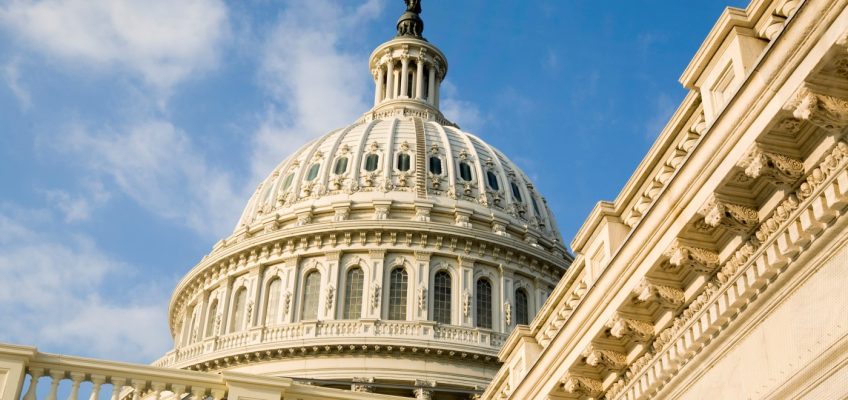Vikings vs. Browns (+3½)
The Vikings play their second straight week in Europe. Many Americans who stayed over the pond for both games spent the past few days visiting Northern Ireland, where they toured the countryside and stopped at Rory McIlroy’s home to curse him.
Pick: Vikings by 7
Rory McIlroy of Team Europe celebrates with fans after Team Europe’s 15-13 win over Team United States during the Sunday singles matches of the 2025 Ryder Cup at Black Course at Bethpage State Park Golf Course on Sept. 28, 2025 in Farmingdale, New York. (Photo by Richard Heathcote/Getty Images)
Texans at Ravens (-3½)
Baltimore is 1-3 and ravaged by injuries to QB Lamar Jackson and several top defenders. In an effort to boost morale, coach John Harbaugh is considering renaming the Ravens’ defense the Department of War.
Pick: Ravens by 7
Head coach John Harbaugh of the Baltimore Ravens looks on after losing to the Kansas City Chiefs 37-20 at Arrowhead Stadium on Sept. 28, 2025 in Kansas City, Missouri. (Photo by David Eulitt/Getty Images)
Cowboys at Jets (+2½)
Bad Bunny will headline the halftime show at Super Bowl LX in February in Santa Clara, Calif. That’s a huge victory for fans of the Puerto Rican megastar who wagered online that he would make it to a Super Bowl before Jerry Jones’ team did.
Pick: Jets by 3
NEW YORK, NEW YORK – MAY 06: Bad Bunny attends The 2024 Met Gala Celebrating “Sleeping Beauties: Reawakening Fashion” at The Metropolitan Museum of Art on May 06, 2024 in New York City. (Photo by Dia Dipasupil/Getty Images)
Chiefs at Jaguars (+3½)
Jacksonville coach Liam Coen got into a postgame tussle with 49ers assistant Robert Saleh in which he warned the coach to “keep my name out of your (expletive) mouth!” The quote proved costly to Coen as he has been ordered to pay royalties because that line has been trademarked by Will Smith.
Pick: Chiefs by 7
Jacksonville Jaguars head coach Liam Coen reacts toward an official near the sideline during the first half of an NFL football game against the San Francisco 49ers in Santa Clara, Calif., Sunday, Sept. 28, 2025. (AP Photo/Kelley L. Cox)
Dolphins at Panthers (-1½)
Tyreek Hill’s season ended with a dislocated knee in Monday night’s victory over the Jets. The injury was especially tragic for the Dolphins, who were planning to trade Hill in a couple of weeks when they begin tanking for Arch Manning.
Pick: Panthers by 7
Miami Dolphins wide receiver Tyreek Hill (10) talks with a staff member as he is carted off the field after suffering an unknown lower leg injury in the second half of an NFL football game against the New York Jets, Monday, Sept. 29, 2025, in Miami Gardens, Fla. (AP Photo/Rebecca Blackwell)
Patriots at Bills (-7½)
Stefon Diggs, coming off his best game as a Patriot, says he’s “excited” about young New England quarterback Drake Maye. It’s a big change for the former Viking, as lately he has only shown enthusiasm for Cardi B and baggies of pink powder.
Pick: Bills by 11
Stefon Diggs #8 of the New England Patriots runs against the Carolina Panthers during the third quarter in the game at Gillette Stadium on Sept. 28, 2025 in Foxborough, Massachusetts. (Photo by Evan Bernstein/Getty Images)
Raiders at Colts (-6½)
Indy rookie Adonai Mitchell likely cost the Colts their first loss by dropping the football an instant before crossing the goal line for what would have been a crucial touchdown. It was surprising because Jonathan Taylor is usually in charge of the Colts’ season-killing ball drops at the goal line.
Pick: Colts by 4
Adonai Mitchell #10 of the Indianapolis Colts fumbles the ball at the goal line during the third quarter against the Los Angeles Rams at SoFi Stadium on Sept. 28, 2025 in Inglewood, California. (Photo by Ronald Martinez/Getty Images)
Commanders at Chargers (-2½)
Los Angeles was stunned by the lowly New York Giants for its first loss of the season. Chargers coach Jim Harbaugh is not taking the loss lying down and has been poring over scouting reports in the hopes of finding a new sign stealer.
Pick: Chargers by 7
Los Angeles Chargers head coach Jim Harbaugh watches the scoreboard during an NFL football game against the New York Giants on Sunday, Sep. 28, 2025, in East Rutherford, N.J. (AP Photo/Rusty Jones)
Titans at Cardinals (-7½)
The Titans are winless, starless and hopeless. But on the bright side they’re still ranked fourth in the state behind the Tennessee Volunteers, Memphis Tigers and Vanderbilt Commodores.
Pick: Cardinals by 11
Cam Ward #1 of the Tennessee Titans is tackled by Tyquan Lewis #94 and Zaire Franklin #44 of the Indianapolis Colts during the first quarter at Nissan Stadium on Sept. 21, 2025 in Nashville, Tennessee. (Photo by Dylan Buell/Getty Images)
Giants at Saints (-1½)
Giants rookie quarterback Jaxson Dart won his starting debut against the Chargers last Sunday. New York sports fans haven’t been this delighted since the Mets’ season mercifully ended.
Pick: Giants by 3
Jaxson Dart #6 of the New York Giants celebrates a win against the Los Angeles Chargers after the game at MetLife Stadium on Sept. 28, 2025 in East Rutherford, New Jersey. (Photo by Ishika Samant/Getty Images)
Other games
Lions at Bengals (+10½)
Pick: Lions by 27
Buccaneers at Seahawks (-3½)
Pick: Seahawks by 3
Broncos at Eagles (-4½)
Pick: Eagles by 7
Amon-Ra St. Brown #14 of the Detroit Lions scores a touchdown during the fourth quarter against the Cleveland Browns at Ford Field on Sept. 28, 2025 in Detroit, Michigan. (Photo by Mike Mulholland/Getty Images)
Bye week
Falcons, Bears, Packers, Steelers
Record
Last week
6-9-1 straight up
*** 2-14 vs. spread
Season
40-23-1 straight up (.635)
32-32 vs. spread (.500)
All-time (2003-25)
3859-2124-15 straight up (.645)
2942-2911-145 vs spread (.503)
*** Sadly, not a typo. To paraphrase the great Walter White: “MY PICKS ARE THE DANGER!!”
This image released by AMC shows Bryan Cranston, left, and Aaron Paul in a scene from “Breaking Bad.” Paul is nominated for best supporting actor in a drama series for his role as Jesse Pinkman. The Academy of Television Arts & Sciences’ Emmy ceremony will be hosted by Neil Patrick Harris. It will air Sept. 22 on CBS. (AP Photo/AMC, Frank Ockenfels )
You can hear Kevin Cusick on Thursdays on Bob Sansevere’s “BS Show” podcast on iTunes. You can follow Kevin on X — @theloopnow. He can be reached at kcusick@pioneerpress.com.
The Loop Fantasy Football Report Week 5: As top receivers drop, no-names can catch on
The Loop Fantasy Football Update Week 4: Last-minute moves
The Loop NFL Picks: Week 4
The Loop Fantasy Football Update Week 3: Last-minute moves
The Loop NFL Picks: Week 3




